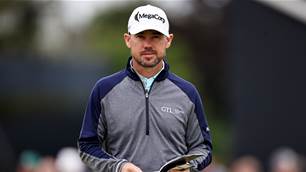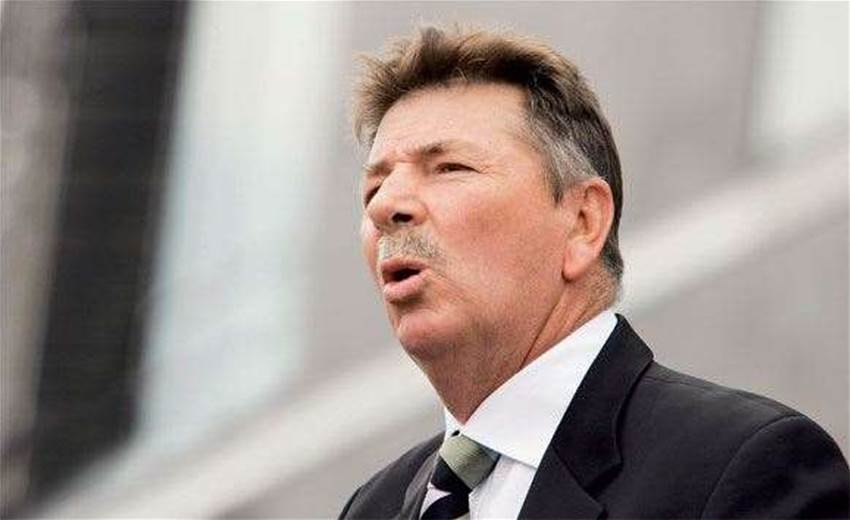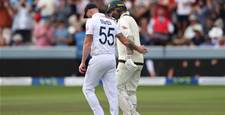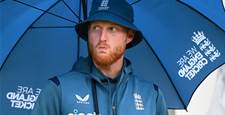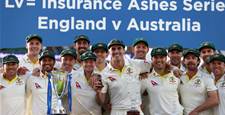It’s unlikely there’s a man better qualified to talk about this summer’s Ashes series than Rod Marsh.
It’s unlikely there’s a man better qualified to talk about this summer’s Ashes series than Rod Marsh.
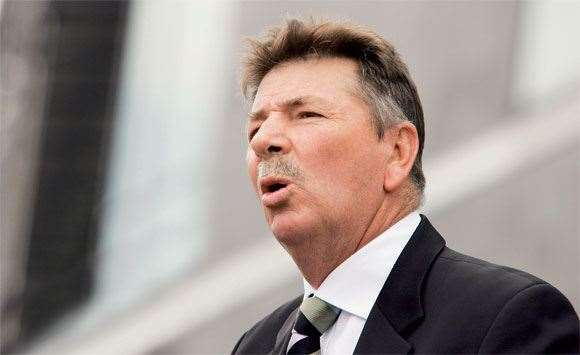 Rod Marsh
Rod MarshImages: Getty Images
In his 14-year international career, “Bacchus” played in winning Ashes series, losing Ashes series and a lone drawn series in England. He faced men like John Snow, Bob Willis and Tony Greig, kept to men like Dennis Lillee, Jeff Thomson and Max Walker. In his 96-Test span (42 of which were against the Old Enemy), he hit over 3500 runs and garnered 355 dismissals behind the stumps. Skilful with the gloves and handy with the stick, he redefined the ‘keeper’s role in the modern game.
Six years after retiring from the Test arena, Marsh took up the head coaching role at the Australian Cricket Academy. When he arrived, the academy was still putting down roots. When he left, in 2001, it had churned out a golden generation of talent, its alumni gilded by names like Warne, McGrath, Ponting and Gilchrist. The following year he shifted to England to head up their fledgling academy. Again, he oversaw a rich output, with old boys Andrew Flintoff, Simon Jones and Kevin Pietersen playing starring roles in England’s ’05 triumph.Gruff, blunt and brilliantly insightful, Marsh has overseen four decades of Ashes conflict. So pull up a pew and hear his wisdom as Strauss’ men begin their defence of the urn
The Ashes are here – are you willing to hazard a prediction?
No! And I think anyone that says one team’s going to win 5-0 is kidding themselves … Look, we’re rebuilding and I think England have rebuilt more than we have at this stage. They’ve got a better-established team at the moment; I think they’re leading in a few departments. They’re certainly leading in the spin bowling department – Graeme Swann’s had a magnificent 12 months. But I go back to when I was a kid: I remember Jim Laker taking 19 wickets against Australia at Old Trafford, yet he came out here in ‘58-59 and bowled on the hard Australian pitches and hardly took any wickets at all. Australia is a notoriously hard place to bowl off-breaks, so perhaps Swann won’t be as big an influence as some people are suggesting. I’d be mortified if he was able to take 35 wickets. If he does, then we lose the series.
But have a look at their pace men – I think they’ve got an exciting bunch of fast bowlers there. And the one bloke that really impresses me is Stuart Broad. I think he’s a really good cricketer. He’s about six foot nine, so if he bowls the right length out here, he’ll be the biggest danger man.On our side, we need to have Bollinger fit, and we need to have him and Mitchell Johnson swinging the ball back in to the right-handers. Englishmen don’t like left-handers swinging the ball back in – in fact, I don’t think anyone does. So if those two can move the new ball back in, then I think we can make some real inroads into their top order.
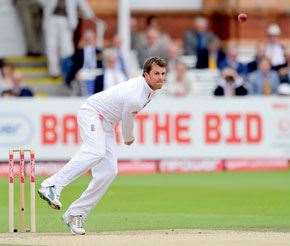 Graeme Swann Bowling
Graeme Swann BowlingImages: Getty Images
You mention Australia’s rebuilding – has the process been slower and darker than you expected?
No – you can’t maintain form when you take key personnel away from a cricket team. I mean, why wouldn’t we drop to fifth on the Test rankings? That’s the way I look at it.Think of the number of match-winners that fall away from a side when you lose five players like Warne, McGrath, Gilchrist, Hayden and Langer. Look at those two opening bats, for example – they’re second to none in Australia’s opening partnership records. And look who we replaced them with. You’ve got Simon Katich – a bloke who came back into the Test side after making 1500 runs at number-three for NSW. And then you’ve got Shane Watson – an all-rounder, a hell of a good batsman I might add, but a bloke who’s primarily an all-rounder. So people talk about how we’ve replaced Hayden and Langer, but have we really replaced them, or have we just thrown a couple of makeshift blokes in there, both of whom could be better suited to batting down the order?
I mean, who’s the next pure opener in Australian cricket? Who’s the next pure batsman among the kids? Is it the young Callum Ferguson from SA? How many first-class centuries has Callum Ferguson got? How many first-class centuries did Mark Waugh have before he got chosen to play for Australia? He had plenty. All these kids we’re talking about now haven’t done a heck of a lot in first-class cricket. And that’s what we need to look at – first-class cricket, not one-day cricket. There’s very little I can see that’s come through in the last decade. It still seems to me that Brad Hodge, at 35, is one of the best few batsmen in the country outside the Test team. And that shouldn’t be the case.
So this is a failing in Australian cricket, this tendency to judge young talent on their numbers in ODIs and T20s rather than their Sheffield Shield stats?
Look, I’m convinced that if you can play the longest forms of the game, you can play any form of the game. I don’t care where the game of cricket goes, the most important thing about batting, bowling and ‘keeping is to have a good technique, … You’ve got to indoctrinate these kids with the right techniques. If you don’t, you’re not going to have good 20-over cricketers, you’re not going to have good 50-over cricketers and you’re not going to have good split-innings cricketers.
We need these kids to be making mountains of runs and taking loads of wickets in first-class cricket. Our selectors need to be able to go to a ground and watch a young bloke grind out a hundred in tough conditions. You know, they need to see him let the ball go if it’s bouncing and swinging, instead of trying to open the face and run it down to third man. I see that time and time again, and that’s why teams get bowled out when the conditions in the first two hours are tough. Sometimes you can’t make 120 runs in the first session. Sometimes, to survive, you’ve got to let the ball go. And I don’t think we teach that too well anymore.
Speaking of selections - Haddin or Paine for the Ashes?
Well, that’s not for me to decide … Paine hasn’t done much wrong, but in the same breath, Haddin’s one of the most explosive batsmen in the country. He’s as good a hitter of the cricket ball as anyone. So if he’s fit he’s probably still the selectors’ first choice. But good on Tim Paine for putting a hell of a lot of pressure on Haddin – that makes for a better cricket team. If it’s tough for the selectors to pick an XI because they’ve got 15 blokes putting their hand up, pressing hard, then that’s good for Australian cricket. If there’s no pressure from those not in the team, then it’s no good for Australian cricket …
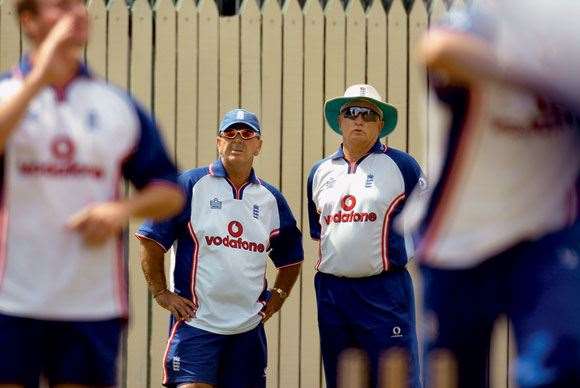 Marshy disguised as an England coach, with Duncan Fletcher, back in 2000
Marshy disguised as an England coach, with Duncan Fletcher, back in 2000Images: Getty Images
Like our spinner shortage?
Well, that’s right … And in some ways I think Shane Warne ruined that a little bit for all competitors. I mean, look at Stuart MacGill: he had a terrific Test career but he was always living in the shadow of Shane. But we still managed to play both of them on occasions and it would be nice to think that both Steve Smith from NSW and Cullen Bailey from SA were competing for the same spot, taking mountains of wickets in Shield cricket.
What are your thoughts on Ricky Ponting’s captaincy?
I find it very difficult to believe we should replace Ponting for this Ashes series. That to me is a joke. If Ricky wants to play – and he does – then he’s got to be captain. Quite frankly I don’t think there’s anyone else who has the capability to do that job right now.I’ve always thought of Simon Katich as one who could’ve captained Australia, had things been a little different. A few years back he got very ill in Sri Lanka when he was just starting to blossom and had that not happened then he may well have been captain before Ricky. But Ricky’s our best player and we’ve got a habit of picking our best player as captain and it’s held us in good stead across a lot of years.
Is Ponting getting enough strategic help from those around him on the field?
Well, Ian Chappell used to always say, “Eleven heads are better than one.” But at the same time, captaincy’s like computing: if you press the button to send something, then you’re responsible. The captain can have as much input as he likes, but he’s always got to be responsible for pressing that “send” button.
You’ve spent a lot of time in England – what are thoughts on Andrew Strauss’ captaincy?
I think Andrew’s a heck of a good bloke. He’s a very settled bloke, there’s not a heap of flair about him lifestyle-wise. Money and fame wouldn’t affect him in any way, shape or form. He’s well-educated, he’s very capable … He’s just a good bloke.And what he’s done, along with Andy Flower, is to get these blokes working as a unit, believing in each other. And that to me is one of the great arts of captaincy. It’s not about where you set your field – it’s a matter of how you get your blokes working together. And I think Andrew’s very good at that. He’s terrific.
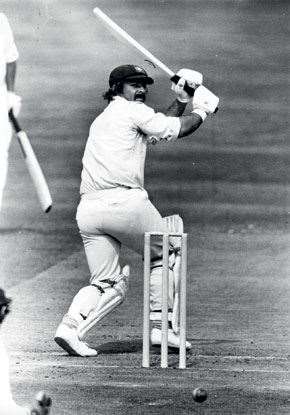 Marsh with the bat: he would have been a hit in T20, no risk.
Marsh with the bat: he would have been a hit in T20, no risk.Images: Getty Images
Kevin Pietersen’s gone off the boil quite remarkably this year, can you see him having a big series?
Yep. In my opinion he’s a great player. He’s a little bit different, Kevin, but he’s a fantastic batsman who can rip you apart. And the more Australia tries to upset him, the better he’ll play. The less people talk about him, the less anyone even mentions his name, the better chance we’ve got of getting him out cheaply. I worked very closely with Kevin at the Academy and I know for a fact that you’re better off forgetting about him, not talking to him on the field, not trying to upset him in any way, because he’ll come back to bite you. He’s a fine player – second-best batsman I’ve had as a kid behind Ponting.
Given all your involvement with English cricket, what was going through your mind when they won the ’05 series?
It was a hell of a series – nothing was going through my mind except that it was fantastic cricket! I wasn’t actually a selector for that series – they wouldn’t allow me, must’ve thought I was going to throw in a bloke who couldn’t play … But it was a heck of a good series. It was quite enthralling from my point of view, watching blokes I’d had in the English Academy like Simon Jones and Andrew Flintoff playing against all the guys I’d had in the Australian Academy. I didn’t feel I’d done anything but good, because it was definitely some of the best cricket I’ve ever seen.
Do you think you would’ve enjoyed playing in this ultra-professional era?
If I was in this age bracket, then yes, because I love playing the game. Would I have liked to be playing in the early 1900s? Yes, I would, because I love playing the game. I would’ve always played cricket. I fell in love with it at a very early age and have remained faithful ever since.Everyone says I would’ve been a good T20 player. Well … I don’t even remember too many one-day matches I played, but I certainly remember every single Test match. And I think most players are still like that today. They won’t remember T20 cricket, they might remember the odd 50-over game, but they’ll savour every single game of Test match cricket that they ever play.
The Test teams you played in were always revered for their “hard-arse” approach to the game, but now the Australians are castigated when they try and employ a rugged approach, and it’s given the Australians a poor reputation in some spheres. What’s changed?
Well, the best way to intimidate an opposition is to have two great fast bowlers – and we had ‘em. We could intimidate anyone without saying a word – and that’s where it’s misconstrued. Everyone thought we were non-stop chat on the cricket field, but that’s absolute rubbish. Most of the intimidation came from balls pitched just short of a length going past people’s nostrils, without helmets on. That’s intimidation! We were the bullies, fine. But we were the bullies because we had Lillee and Thomson. I don’t think we said any more or any less than teams in the 1930s. Though I imagine if someone French-cut Bill O’Reilly for four he’d have had a bit to say …I see video images of us taking a wicket over in England in 1972, and we’re all just standing there. There was no jumping around and high-fiving; you just took the wicket then thought about how you were going to get the next bloke out.
One of the things that annoys me these days is to walk into a cricket ground and hear the noise coming from the field. It’s just ridiculous some of the things you hear. You see a bloke bowl a ball three feet outside off and everyone claps it and says, “Great line!” Great line? Hello? And you hear coaches saying, “Come on, boys, I want to hear some noise out there.” Well, the only noise I want to hear is stumps being knocked down.
The funniest thing you’ve seen on a cricket field?
Definitely the funniest thing I saw was in Rawalpindi, in Pakistan. Some bloke ran onto the field and he got chased by one of those policemen with a stick, a lathi. And this bloke was running flat-out, and the policeman had a fat tummy and he was never going to catch him, so he threw his lathi at him. And the stick bounced and bounced, and, just by luck, as the bloke threw his hand back the lathi landed in his hand. And, of course, when he brought his arm through and saw the lathi he didn’t know what to do … We were in the field watching all this and I just thought, well, that’s the most amazing thing I’ll ever see.
You’re currently in Dubai – what are you doing over there? Helping someone else work out how to beat the Aussies?
I’m director of coaching at the ICC Global Cricket Academy. It’s being built now at Dubai Sports City and it’s a massive project. When it’s finished we plan to have intakes from all over the world. We’ve got pitches from all over the world here – soil from Pakistan, from Western Australia, from Queensland, from England – so we can replicate different types of conditions. We’ve also got different conditions indoors: perfect batting pitches, fast bowling pitches and a couple of spinning pitches that double as four and five-day Asian pitches, where there’s very little bounce and you can get the ball to reverse very easily. It’s quite interesting.
Is this academy the end product of the Australian Cricket Academy you were involved in two decades ago?
Well yeah, it probably is. But we also want to use this facility as a research and development centre for technology in cricket. That’s the next big thing. So, for example, we’re trialling a brand-new bowling machine that’s just been developed by a friend of mine in NZ. I can’t tell you too much about it, but if it does what he says it does, then it might be the next big thing …
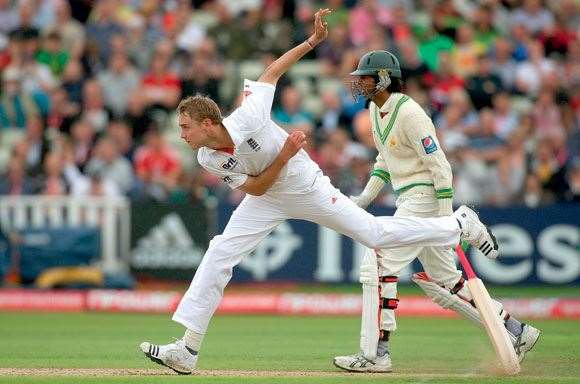 Stuart Broad: “If he bowls the right length out here, he’ll be the biggest danger man.” Images: Getty Images
Stuart Broad: “If he bowls the right length out here, he’ll be the biggest danger man.” Images: Getty ImagesWhen we’re complete, this academy’s going to be used for all sorts of things. We want to use it for education, and we’re not just talking coach education, we’re also talking administrator education, curator education. We want to be able to hold all sorts of conferences here – anything pertaining to the game of cricket.
It sounds like an epic undertaking?
It’ll definitely be my last job, I’d think...
And I hear your family history has recently gone under the microscope in SBS’ Who Do You Think You Are? (The episode will air on Dec 5 on SBS One). An emotional experience?
I’m not sure that it was emotional, but I thoroughly enjoyed the experience. I had no idea where they were taking me or what I was doing, so there was a touch of the unknown about it all, but the way everything evolved . . . I was totally surprised at the end result. It’s something that, throughout my life, I’d never really thought much of. It’s only when you start to get a bit older you think, “God, yeah, what’s going on here?”
And the other thing I’ll be eternally grateful to them for is that now I don’t have to do the research myself! And my kids, my three boys, think exactly the same way. I guess their kids will be thinking the same thing, too. The work’s been done. But it’s a hell of a yarn, I tell you. There were a lot of surprises there for me and a few skeletons in the closet
as well …
– Aaron Scott
Related Articles
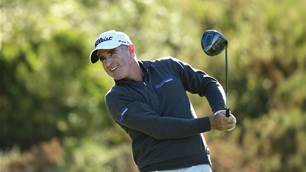
Video interview: Drinks With ... Matt Millar
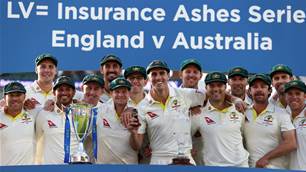
Luck of the Draw
